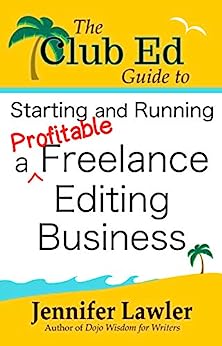How to Get Editing Experience
When a new book editor is just learning developmental editing, I offer this advice for how to get editing experience.
How to Get Editing Experience as a New Editor
“I feel a little overwhelmed,” editing students tell me from time to time as they learn the craft. Mostly they’re worried that this means they’re not cut out for working as a developmental editor. And sometimes it’s not a good match for someone’s personality, skills, and/or abilities. But it is perfectly normal to feel like you may never master it all.

Learning Developmental Editing
Developmental editing has a steep learning curve. You can love to read and know a lot about the writing craft and have excellent critical skills and still have a lot to master. It’s a very complex process.
Practice…and then practice some more
What you need more than anything is practice. So, where can you get some?
- Do critiques for writers.
- Join a book club.
- Join a writers’ group as an editor (explain your goals first).
- If possible, try interning for a publisher. Read through the slush (unsolicited mss) with a critical eye.
Barter
Always think in terms of exchange. Even if you’re not the most experienced editor in the world, your time is worth something. Editing for free just because you want the experience devalues your work.
Instead, offer your services in exchange for something else, not necessarily money. For example, you might edit a manuscript for a friend in exchange for her babysitting your kids for a certain number of hours. You’re both giving and getting something of value, even if no cash changes hands. You may do a few initial projects for low pay and a testimonial.
A Few Friendly Warnings
If you’re just starting out and have little relevant experience, don’t invent some, thinking no one will ever find out and if they do, they’ll overlook it because you’re so talented. Freelancers build relationships based on trust and no matter how talented you are, if you betray that trust, your clients will drop you. They may even go to great lengths to spread the word about your misrepresentations. The last thing you need is for someone to crank up the Twitter outrage machine and feed it your name.
By the same token, sometimes freelancers are so eager to take on any project that they agree to do things outside their ability. Stretching yourself is fine. Learning new things is terrific—we should all do more of it.
Promising something you have no way to adequately deliver is not okay.
If you have experience copyediting user manuals, it’s not much of a stretch to also copyedit how-to books. But it’s another thing entirely to agree to, say, coach a novelist on figuring out the narrative arc of her work-in-progress. In other words, A to B makes sense. A to E does not.
Use your experience to make logical bridges to related areas. You can find ways to connect where you are (A) to where you want to be (E), but it requires time and planning, not shortcuts.
Tips for Editors & Writers
-
Editor Spotlight – Zainab Mirza
I’m sharing success stories from newer editors. The following is from Zainab Mirza. – Jennifer Lawler A few weeks ago, you asked folks to share their success stories. I have a couple of wins I’d like to share. Story #1:When I first moved back to Kuwait after college in 2012, I built relationships with a…
-
Freelancing through Tough Times
Sometimes it can be difficult to focus on work. The world is on fire or your brother just died; you’re struggling with your health or your spouse just lost their job. Here are some simple things you can do to help make it through tough times: It’s difficult to focus when the news is bad…
Join the Club!
New to story editing? Begin at the beginning.



